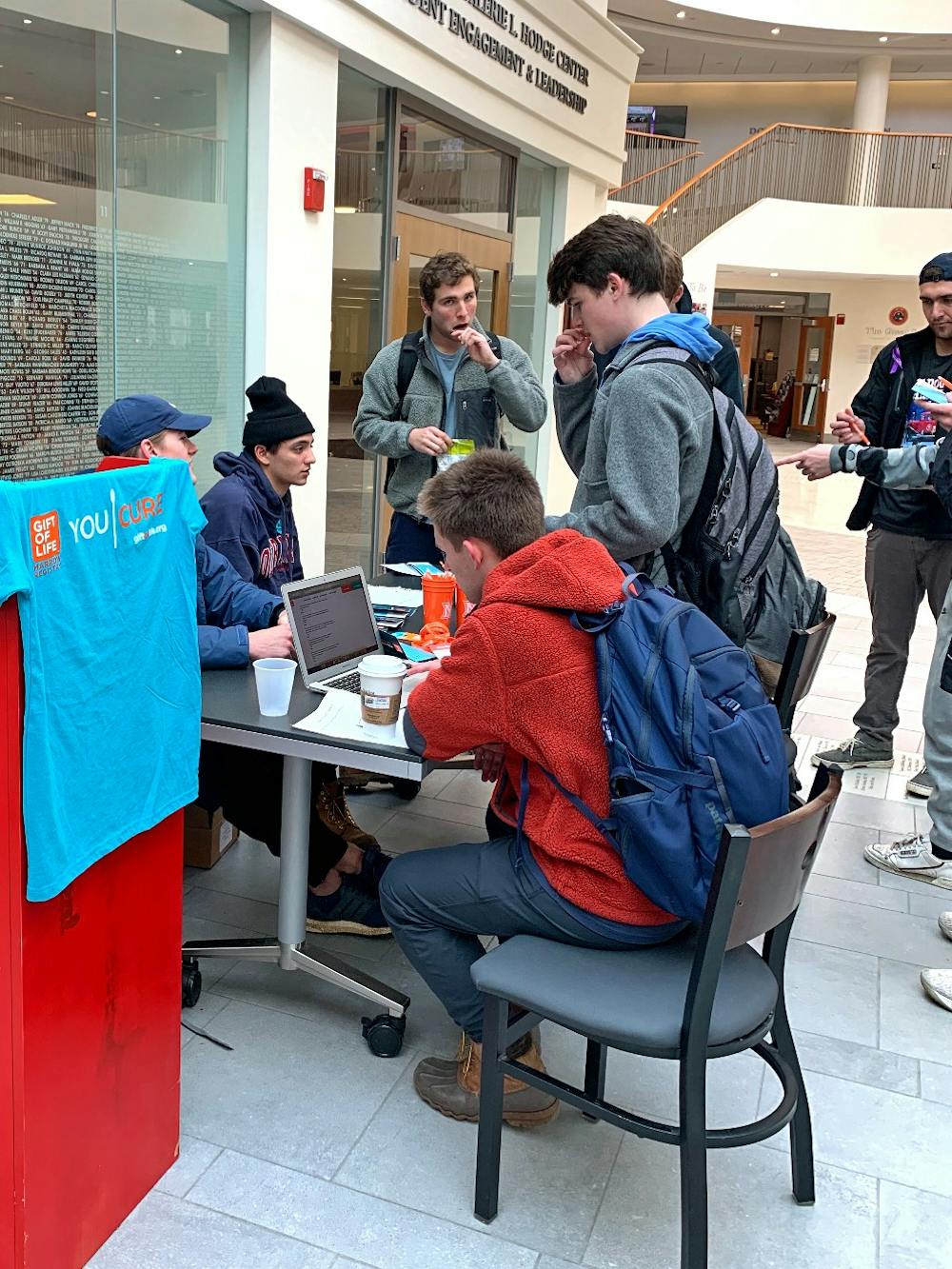A line of Miami University students stands in Armstrong Student Center, waiting their turn at a booth in front of the passing crowd. A student steps up with a reddened face, scrunching their nose as a cotton swab swipes their inner cheek.
These ten seconds could save a life.
Gift of Life Marrow Registry is a nonprofit organization committed to finding volunteer stem cell donors to help those suffering with many types of blood disorders and cancers. They sponsor daily events like these on college campuses around the country. Not only do Gift of Life campus ambassadors target popular student hubs like Armstrong, but they regularly visit Greek organizations to swab members.
Miami Pi Kappa Alpha (PIKE) fraternity member Ryan Bergen successfully donated his stem cells after being swabbed at an event hosted by Gift of Life at his chapter.
“A campus ambassador came into [PIKE’s] house to swab us all,” Bergen said. “I almost forgot about it because it wasn’t until five months later I got an email saying I was a potential match.”
Bergen, unfamiliar with the stem cell donation process, was initially apprehensive about committing to the project.
“Obviously I was scared. I didn’t know exactly what to expect,” he said. “But I just knew that I had the chance to save a life, and that’s what I was going to do.”
His donee, a 29-year-old male with non-Hodgkin’s lymphoma, required blood stem cells after all other treatment plans were unsuccessful. After several tests to confirm his candidacy for donation, Bergen flew to a stem cell collection center in Boca Raton, Florida. There, Bergen donated blood stem cells through a process called apheresis. The process takes blood out of the body, filters out blood stem cells and returns the rest of the blood to the donor’s body.
“I wouldn’t say it was a fun journey, but … in the grand scheme of things, it was nothing,” he said. “This guy is facing his life. My stem cells are possibly the only thing that could keep him alive.”
Even after returning to Miami, Bergen still hasn’t had any contact with the man he donated to.
“I don’t know anything else about him; he could be anywhere in the world,” Bergen said. “A year later, if he’s healthy and wants to meet, I get to meet him and that’d be the coolest thing.”
Bergen explained that his donation was not only a personal mission, but part of a greater movement to change the perception of Miami fraternities.
“Obviously there’s been negative publicity with fraternities, especially here at Miami in the last couple years … but we’re not just drinking clubs,” Bergen said. “[When we spoke] my chapter advisor was like, ‘We wanna get this out to as many [people] as possible because this [service] is what we want to show.’”
Enjoy what you're reading?
Signup for our newsletter
Since donating, Bergen has become a campus ambassador for Gift for Life, hosting swab events around campus. In response to his encouragement, most of his fraternity has now been swabbed for donor candidacy. Some PIKE members have already been contacted by Gift of Life for further testing.
Another PIKE member, Jacob Wolanske, recently received an email informing him of a potential match.
“I just woke up one morning and saw the email,” Wolanske said. “Within an hour I felt like I wanted to do it right away.”
Although Wolanske does not yet know whether Gift of Life will ask him to continue testing for donor status, he explained that fellow PIKE brothers supported his decision to pursue stem cell donation.
“The cool part about being a part of a fraternity or sorority is that since giving back to the community is one of their main focuses, you’re exposed to [service programs] and have the opportunity to participate in them,” Wolanske said.
As Miami students continue to receive their results from Gift of Life, Wolanske expressed that he was optimistic that others would commit to stem cell donation.
“[Bergen’s] whole story was definitely empowering and inspirational for us,” he said. “You have the chance to change someone’s life with this and, for me, the opportunity seemed like the right thing to do.”
Correction: This article has been changed to clarify that the donations help those suffering from blood disorders and cancers. A previous version of the article stated the donations helped those with blood cancers. The article also previously stated that donors can watch the stem cell separation process. They can watch the blood leave and return to their body, but the process itself takes place inside a machine.




